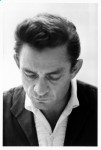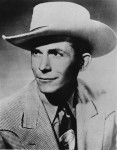Under Covers 8: Classic Country Covers
posted in: Country • Music News
 As is the nature of the genre, country music tend to present us with universal themes that live much longer than their creators. Two such examples are Ring of Fire popularized by Johnny Cash (originally written by June Carter) and I’m So Lonesome I Could Cry performed by Hank Williams. Cash and Williams have much more in common than one might originally think ” both struggled with the image of fame, both had difficulty holding marriages together and both eventually sought refuge from these problems through drug and alcohol abuse, a pursuit that ultimately led Williams to his grave (an end result Johnny narrowly escaped). However, from the starry-eyed young gentlemen to the hopeless addicts, every persona these artists embodied throughout their careers was portrayed passionately, a feat few others in the history of pop music can rightfully claim.
As is the nature of the genre, country music tend to present us with universal themes that live much longer than their creators. Two such examples are Ring of Fire popularized by Johnny Cash (originally written by June Carter) and I’m So Lonesome I Could Cry performed by Hank Williams. Cash and Williams have much more in common than one might originally think ” both struggled with the image of fame, both had difficulty holding marriages together and both eventually sought refuge from these problems through drug and alcohol abuse, a pursuit that ultimately led Williams to his grave (an end result Johnny narrowly escaped). However, from the starry-eyed young gentlemen to the hopeless addicts, every persona these artists embodied throughout their careers was portrayed passionately, a feat few others in the history of pop music can rightfully claim.

Johnny Cash
It goes without saying that love is the motivation behind an immense number of famous songs. Despite its title, Ring of Fire is no exception. June Carter originally wrote the song when she was finally falling for Johnny but was having difficulty committing due to the aftermaths their recent relationships, and Johnny’s battle with addiction. But, as the lyrics progress, it becomes clear the June couldn’t help herself, as she fell deeper and deeper into the ring of fire that is love. The further you fall, the harder it will be to drop out of the relationship and climb out of the flames.

June Carter
You might even say she was addicted to love. Johnny’s performance of the song solidified his image as the man in black that he’s known as today. After all, what’s more menacing, a balladeer crooning about love in the traditional sense or describing it as a ring of fire? The song’s original recording by Anita Carter was met with limited success, so Johnny told Anita he would record it the way he felt it if her rendition didn’t make in impact in the next six months. And he did just that.
Johnny’s mariachi-oriented rendition is much more upbeat than Anita’s and, at first listen, it might even come across as mocking. But, as time has proven, his original style added an energetic flair to the song that’s kept it alive and well ever since. Yet despite the song’s longevity, some people still make it halfway through their lives without ever hearing Ring of Fire, as was the case with this week’s featured artist, Pat Kelly.
I’ve been told that my rendition of ROF is completely unique and if it weren’t for the words, most wouldn’t recognize it as the Carter/ Kilgore classic. The reason it sounds this way is because I had never heard the original when I first played it. Jeff Burke (bassoonist) and I perform as a duo at times for impromptu gigs and Jeff usually brings sheets containing lyrics and basic chord structures of covers and literally throws whatever he may have in front of me, and then I start playing the song. Usually, I have a common knowledge but sometimes I don’t and I just play what I feel. You should hear our rendition of Fleetwood Mac’s “Dreams” or our Soka/Reggae version of “Time To Say Goodbye.”
I knew the song had become a crowd favorite, and when news of my friend; Kenny MacLean (Platinum Blonde) had died and there was to be a memorial. I contacted Alan Frew (Glass Tiger) and Jeff to say we should open the night with ROF. Kenny was very charitable and would visit a camp for kids with cancer (Camp Oasis) over the last few years before his untimely death. Kenny would always play Ring of Fire, (the Johnny Cash version) to the kids and they loved it. As you can hear, my version is a little more intimate and Alan, Jeff and I felt it fitting to send our friend’s night off with this tribute.

Pat Kelly
As any listener familiar with the song will immediately notice, Kelly’s interpretation of the song is about as distant from the Cash version as one could wander. Not overly energetic, this version is more lukewarm, and with the left field addition of Bassoon, gives the piece an entirely new orchestral vibe. To top it all off, Kelly’s voice is noticeably raspier than Cash’s, in turn lending a burnt-out perspective to the song as a whole. I picture this ring of fire to be less about romantic love and more about familial/friendship bonds. Perhaps the perfect combination of sorts for a song dedicated towards remembrance, as in the scenario mentioned above.

Hank Williams
Where Cash’s song spells out the magnetic pains of love, Williams’ I’m So Lonesome I Could Cry outlines just the opposite. Some have described it as the saddest song in the world, but seldom offering a minor chord or chord progression change, it really doesn’t sound that tragic”until Williams’ personal story comes into the picture. By the time this song was released in 1949, Williams was struggling to hold his marriage with manager/ wife Audrey Sheppard together, and with the arrival of a new baby (Hank Williams Jr.), the scene wasn’t getting any prettier. Alcohol and drugs took hold of his sanity, and it was all downhill from there. On New Years Day in 1953, he was found dead in the back of his chauffeur’s car while on the way to a show in Canton, OH. Though the circumstances around William’s death are nothing more than theories, it is widely assumed that he died from a fatal concoction of morphine, B12 and alcohol. Whether it was self-injected still remains a mystery. He was 29 years old.

Deanna Cox
Thankfully, OurStage artist Deanna Cox has made it to age 29 and beyond. I can’t speak to whether or not she’s faced any life altering adversities, but she sure sings like she has. Above all else, her cover of I’m So Lonesome I Could Cry displays stunning vocal layers beaming with life experience and a forlorn wavering harmonica that yanks at your heartstrings throughout the song. Supporting these two features is a bed of strings and a twangy fiddle to complete the quintessential country sound. Noticeably absent from Deanna’s lyrics is the Just like me line before the he’s lost the will to live section in Hank’s original. Deanna’s voice comes across like that of a woman who’s persevered throughout life, making the absence of this lyric all the more fitting.
Faced with clear-cut lyrics with minimal instruments, the listener is unrestricted in responding to these covers which also demonstrates how some of the most powerful and moving songs are really the most simple.
